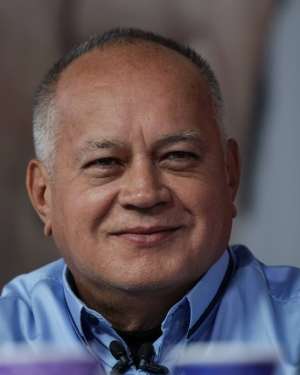The upcoming US Presidential election is truly a "battle for the soul of America" - a confrontation of Right and Left. The winner will shape the direction of the United States for a long time.
Under the 2008-2016 Obama-Biden Democrat administration, the US had a "liberal", "leftwing" or "progressive agenda".
In domestic affairs , this meant bigger government, more regulation of business, more social programs in particular "Obamacare" health reform (Note: in the US government health programs cover the old - Medicare and the poor - Medicaid; most employed Americans have private health insurance benefits through their employers; Obamacare was designed to serve those without medical coverage, e.g. the unemployed, the temporary or "gig" workers, and employees of small firms without benefit programs. It was seen as a first step towards socialized medicine). The progressive agenda also included efforts for redistribution of income and wealth, in particular focused on minorities - African Americans, Hispanics, Muslims, LGBTQ etc. "Identity politics" has long been a key element of the Democrats' platform.
In international affairs it meant reliance on a multilateral approach, be it in international trade (e.g. Transpacific Partnership), environment (Paris climate accord) or international security (the Iran deal). The progressive agenda supported globalism and in particular assumed or hoped that China, America's main challenger, would eventually adopt Western-style values and practices (which is clearly not happening). The Obama administration also made the multilateral deal with Iran, whereby Iran agreed to limit its nuclear program for 10 years, in exchange for a reduction in economic sanctions. Iran has been systematically cheating on the deal and continuing its adventurism in the Middle East.
Since 2017, the Republican Trump administration followed a conservative, "right wing" and "America-first" philosophy.
In domestic affairs, this meant reliance on capitalist free markets, smaller government and lighter regulation of business. Trump simplified and reduced taxes, which stimulated growth and job creation. In 2019, the US reached the lowest unemployment figures in recent history, around 3.5 %. Under Trump, the US achieved energy independence, thanks to "fracking" and emphasis on natural gas, a clean fuel. Trump cracked down on illegal immigration (there are over 11 million illegal aliens in the US, mostly Mexican and Central American) - a wall is being built on the Southern border and asylum seekers were prevented from entering the US.
In international affairs: Trump confronted China and began a trade war which is still going on. Trump renegotiated many trade agreements, favoring bilateral deals rather than multilateral frameworks. Bilateral deals obviously enhance the bargaining power of the US, since the US is usually the larger party to the deal. Trump pushed European allies to contribute more to NATO than they had been accustomed (major culprit is Germany, who benefits from American defense support but engages in strong economic cooperation with Russia and China). In the Middle East, Trump's policy has been to "squeeze Iran". The US left the Iran nuclear deal and increased economic and military pressures on the Iranian regime in order to force Iran to limit its nuclear ambitions and interference in the region. Also, in the Middle East, the Trump administration successfully brokered peace agreements among Israel and Arab countries - United Arab Emirates, Bahrain, Sudan for the time being, probably others to follow. This is a major achievement which may well lead to the solution of the Arab Israel conflict.
Many people - about half - strongly dislike Trump's personality and style. The media is mostly anti-Trump. Academia is strongly against Trump. Many people involved in the public sector, and many career politicians, the so-called "swamp", are against Trump. Since his election in 2016, Democrats have tried very hard to resist Trump and/or get rid of him: "Russiagate" and the Muller investigation, the impeachment attempt and a relentless media campaign went on non-stop but did not succeed.
Despite such strong opposition, Trump would probably be easily reelected had it not been for COVID.
COVID has affected the US significantly - over 225,000 dead so far- and provoked a major economic crisis. Although it is unclear they would have done any better, Democrats accused Trump of having mismanaged the crisis and have benefitted in the opinion polls, which are currently in favor of Biden - around 51% -43% overall and 49% -46% in the so-called "battleground states" (which really matter in the final election, due to the Electoral College sytem).
The recent debates highlighted sharp differences among the two candidates.


During these last few days before the election, there is tremendous tension and fighting passion on both sides. Recent revelations of Joe Biden's son, Hunter Biden's activities in China, Ukraine, Russia (and even Romania, where Hunter Biden supposedly was working with Gabriel Popoviciu) have led to allegations of corruption. These are vehemently denied. In response, Biden questions the business activities of the Trump Organization in various countries and its "tax minimization" strategies.
Because of COVID, voting by mail will be important. Each side is already accusing the other of trying to rig the election.
Voters will decide but expect a close election. Results depend on the battleground states and very small numbers of votes can determine the election result. There could be vote recounts, legal battles and even riots in the streets.























































